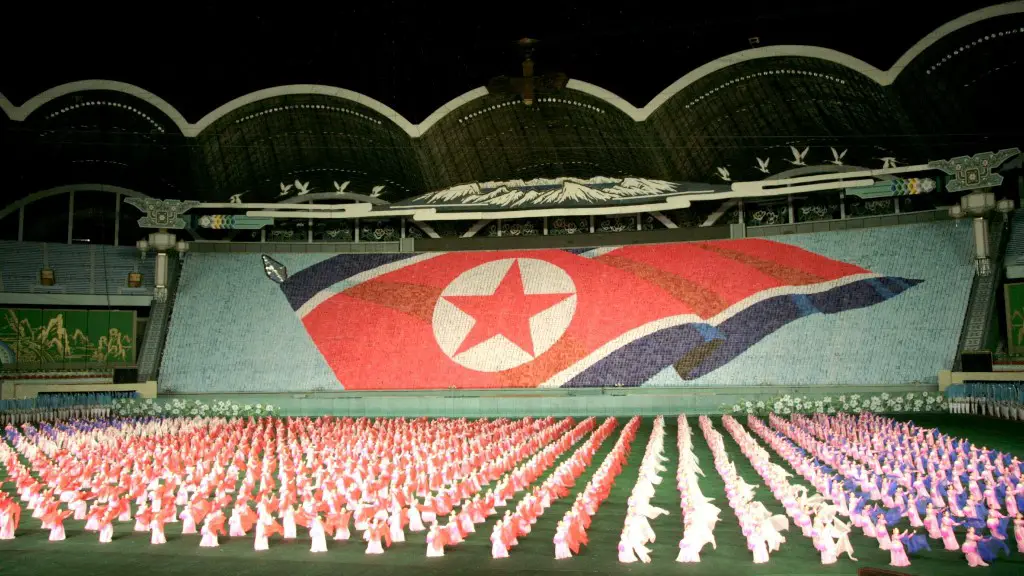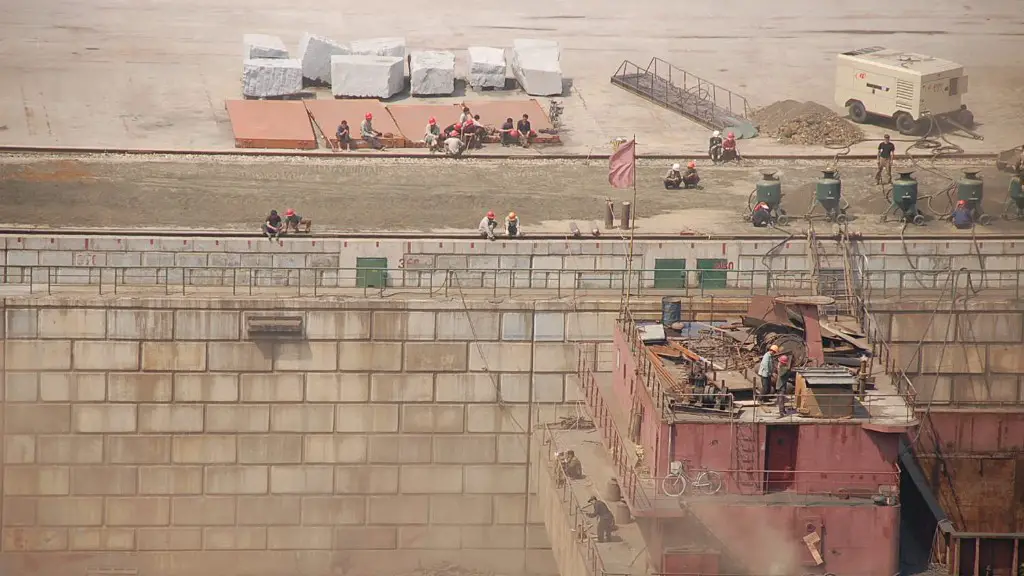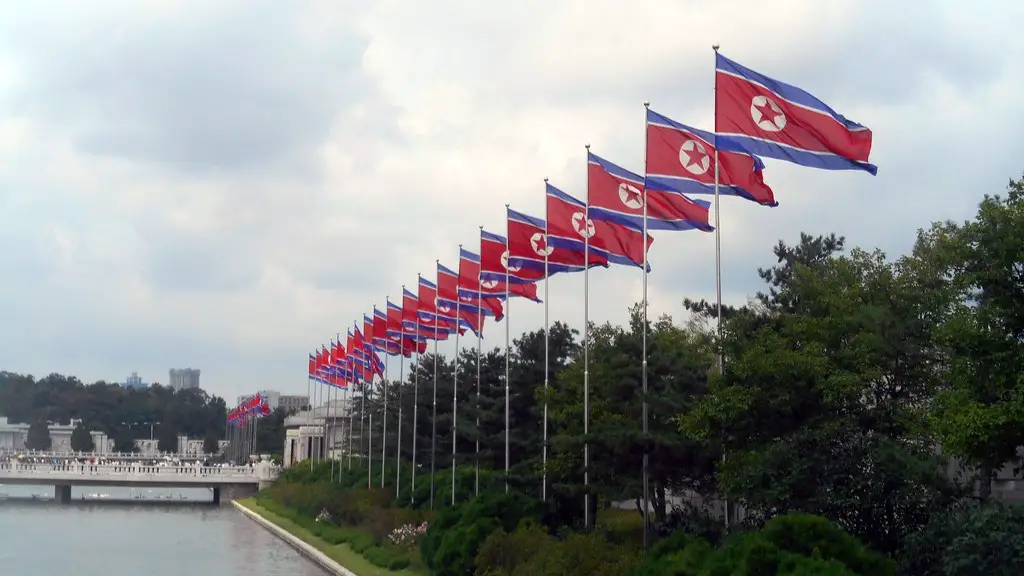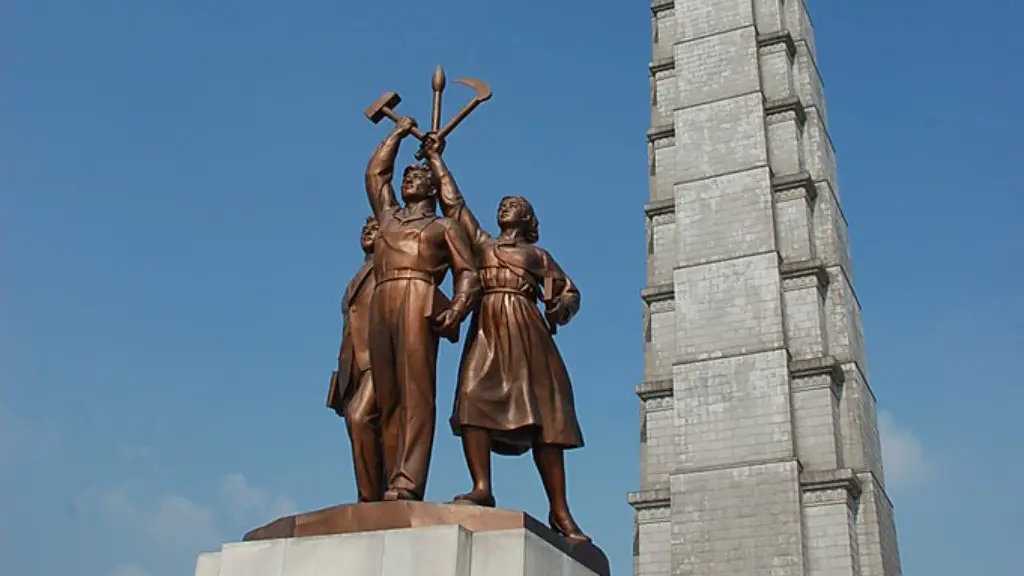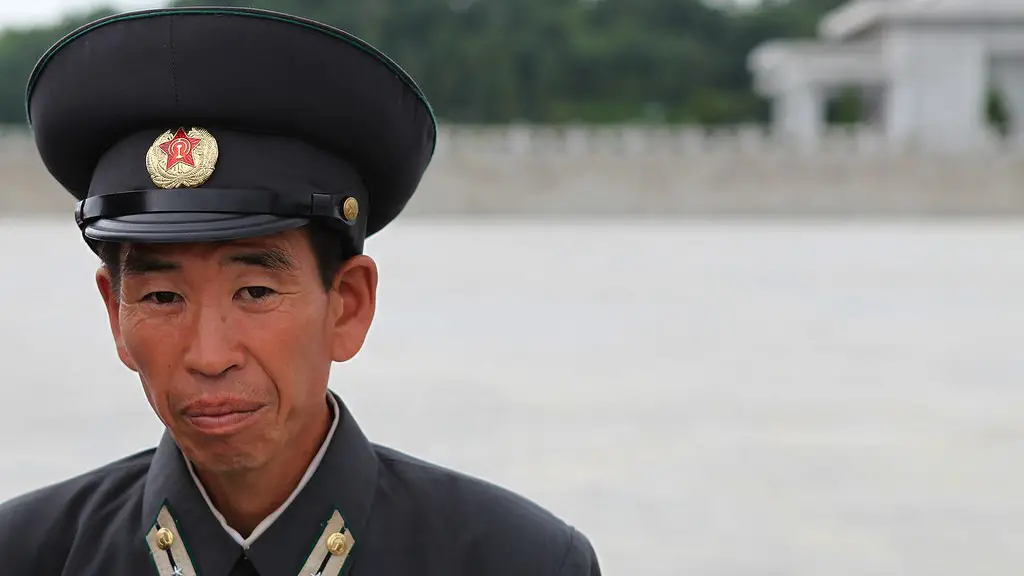How Did North Korea Became What It Is Today?
The history of North Korea is complex and began with the division of Korea at the end of World War II in 1945. After the Japanese occupation ended, Soviet and U.S. forces moved into the region and administered separate governments. North Korea was created as the Democratic People’s Republic of Korea in 1948, establishing a Stalinist-style socialist government. It quickly became one of the most isolated countries in the world and remains so today.
It had strong ties with the Soviet Union and its ally China, both of which provided technical expertise, economic aid, and later, military support during the Korean War. North Korea also established diplomatic relationships with many of the Communist countries in the Eastern Bloc.
North Korea was ruled by the “Great Leader” Kim Il-Sung from 1948 until his death in 1994. Kim Il-Sung introduced a highly centralized and authoritarian political system, the Juche ideology, which is still in place today. He also pursued a policy of economic autarky and military buildup, relying on a system of rigid central planning and currency controls.
The economic policies, combined with mismanagement and a series of natural disasters, resulted in a major famine in the late 1990s in which hundreds of thousands of people died. North Korea’s population has since been heavily reliant on food aid from foreign countries, particularly South Korea, China and the United States. North Korea’s political system has also remained largely unchanged: the country is still ruled by Kim’s family, and Kim Jong-un, his grandson, currently serves as the country’s leader.
The international community has imposed a broad range of economic sanctions on North Korea in an attempt to pressure the country to abandon its nuclear weapons program. While the sanctions have had a negative impact on the North Korean economy, the country’s leadership has so far shown little interest in negotiating with foreign powers. North Korea has long sought to become a nuclear power, and its nuclear weapons program has been a major source of tension between the country and its neighbors, particularly South Korea and Japan, as well as the United States.
North Korea’s leaders are determined to keep the country isolated, and the government regularly relies on fear and intimidation to maintain control of the population. North Korea is one of the world’s most authoritarian and repressive governments, with a dismal record on human rights. The country’s stringent system of internet censorship and surveillance has been labeled the world’s most oppressive.
North Korea remains one of the most mysterious and isolated countries in the world, and the international community has struggled to find effective ways to deal with the country and its provocative leader. However, the country has shown some willingness to engage in diplomacy, most recently in high-level talks with the United States in 2019. It remains to be seen whether or not these talks will lead to any lasting changes in North Korea’s political and economic landscape.
Domestic Politics of North Korea
North Korea is a single-party state, the Korean Workers’ Party (KWP), ruled by Kim Jong-un and his family since the death of Kim Il-sung in 1994. The KWP is an authoritarian system that follows the tenets of the Juche ideology and is committed to ensuring the Kim Jong-un remains in power. Leaders of the KWP are selected by the Supreme Leader and enjoy extensive privileges and power. The state also controls all media outlets and greatly restricts the freedom of speech and press.
The government claims to abide by the rule of law, but the judiciary is not independent, and there is no recourse for citizens who wish to challenge decisions in court. Elections are held, but they are tightly controlled by the government, lack real competition, and are widely seen as a sham. In addition, the security services have the powers to arrest, detain, and torture citizens without trial.
The Supreme Leader appoints members of the cabinet and senior officials in the state, military, and party apparatus. All of the senior military and party officials must demonstrate loyalty to the Supreme Leader, and any disloyalty is punished severely. Armed forces, internal security services and intelligence services are used to suppress internal dissent.
North Koreans are exposed to government propaganda that venerates the Supreme Leader and maintains a cult-like atmosphere. Citizens who express dissent in any form, even in private settings, are subject to harsh punishments. Workers are expected to pledge loyalty to the state and adhere to strict work regulations. Access to the internet is tightly controlled and censorship is used to prevent citizens from accessing outside information.
Economy of North Korea
North Korea is one of the world’s most isolated economies and is one of the few stale-controlled economies in the world. The country’s central planning stresses heavy industry and military production, resulting in a weak agricultural sector and a shortage of consumer goods. North Korea is extremely reliant on external assistance and has been heavily dependent on foreign aid since the mid-1990s.
Sanctions imposed by the international community have had an especially negative impact on the North Korean economy and limited the country’s access to international markets and investment. As a result, North Korea has had to rely heavily on its neighboring countries, particularly China, for trade and foreign aid. North Korea’s currency is the North Korean won, but foreign currencies such as the US dollar, yuan and euro can be used in some areas. The economy of North Korea is subject to strict sanctions and restrictions from the international community due to the country’s nuclear weapons program.
The country’s economy remains largely stagnant and is heavily dependent on foreign assistance. The past few years have seen a slight increase in economic activity due to foreign investment, particularly from China. However, widespread poverty and inequality remain a major concern. North Korea does have a small export sector, primarily exporting minerals, machinery, engineering goods, and textiles.
Foreign Relations of North Korea
North Korea is one of the most isolated countries in the world and has few formal diplomatic relationships. Its primary allies are China and Russia. Ties between North Korea and South Korea have historically been very strained, but in recent years the two sides have made some progress towards better ties. North Korea and the United States have been locked in a diplomatic stalemate since the end of the Korean War in 1953.
North Korea and its allies have long sought to counter the influence of the United States and its allies in East Asia and the Pacific region. In recent years, North Korea has engaged in provocative behavior, including developing nuclear weapons and launching missiles capable of reaching the United States mainland. In response, the United States and its allies have imposed economic sanctions on North Korea in an effort to pressure the country to abandon its nuclear program. As of 2019, negotiations between the United States and North Korea have yet to yield any meaningful results.
North Korea is also a member of the United Nations and several international organizations. It is also a signatory of several international treaties, including the Nuclear Non-Proliferation Treaty. North Korea has sought to put itself at the forefront of the international community and has generally acted aggressively towards other countries in the region.
Reactions to North Korea
The international community has reacted to North Korea’s provocative behavior with scrutiny and condemnation. Human rights violations have been widely criticized and the United Nations has adopted several resolutions censuring the country for its actions. International organizations have subjected North Korea to economic sanctions and other forms of diplomatic pressure in an effort to compel the country to abandon its nuclear weapons program.
China and Russia continue to support North Korea, but have called for the country to abandon its nuclear weapons and engage in diplomacy with the United States. North Korea, however, portrays itself as a strong and defiant nation, and has refused to abandon its nuclear program. The United States and its allies have made it clear that they will not accept North Korea as a nuclear power and will take steps to ensure that the country does not gain access to nuclear weapons.
North Korea’s provocative behavior has provoked strong reactions from its neighbors as well, particularly South Korea and Japan, both of which are U.S. allies. Both countries have strongly condemned North Korea’s actions and have increased defense cooperation with the United States in order to counter its actions. North Korea’s actions have also drawn condemnation from other countries in the region, including Australia, Indonesia and Singapore.
Attempted Diplomacy with North Korea
In the past few years, the United States and other countries have attempted to negotiate with North Korea in an effort to persuade the country to abandon its nuclear weapons program. In 2019, the United States and North Korea held a series of high-level talks in attempts to reach a diplomatic solution. However, these talks have yet to produce any tangible results.
U.S. and North Korean officials have made some progress in narrowing the differences between their respective positions, but the talks have been stalemated due to North Korea’s insistence that the U.S. provide substantial sanctions relief before it will consider taking any meaningful steps towards denuclearization.
In recent years, China, Russia and South Korea have also attempted to engage North Korea in dialogue, with mixed results. China and Russia have been willing to offer economic aid and other incentives in exchange for North Korea ending its nuclear weapons program. South Korea has taken a more conciliatory approach, launching various initiatives aimed at promoting dialogue, increased economic ties, and even the possible reunification of the Korean Peninsula.
Despite these efforts, North Korea remains determined to maintain its nuclear weapons program and has frequently resorted to provocative behavior in an effort to maintain its position in the region. It is unclear whether any diplomatic solution to the conflict can be found in the near future.
